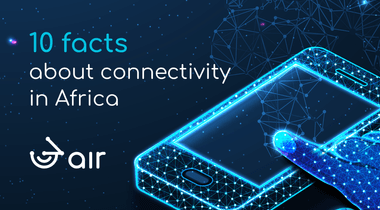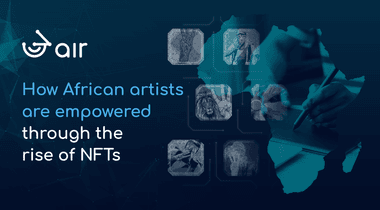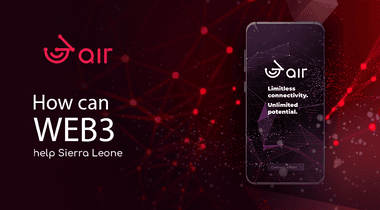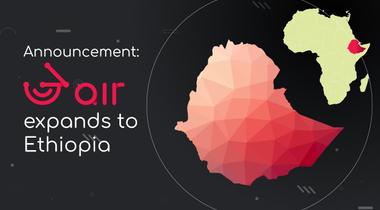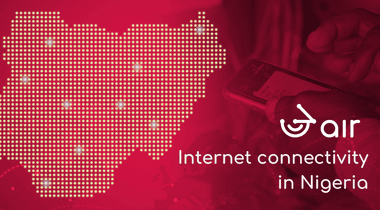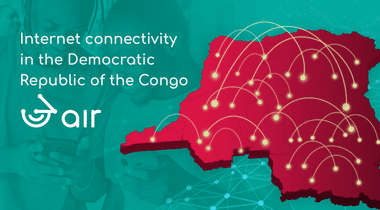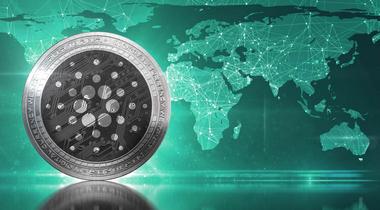Table Of Contents
A range of studies show that the prevalence of internet access has a direct and significant impact on a nation’s economic growth. In the United States and throughout western Europe and Asia, for example, widespread and affordable internet access have propelled a new generation of entrepreneurs into unimaginable wealth. Areas that were once cut off from the world have been reimagined in the digital age, and easy access to globalized business has helped make these places flourish. In Kuala Lumpur, for example, the internet economy is expected to hit a valuation of $35 billion USD by 2025, while in the United States the internet economy has grown seven times faster than any other economy in the nation.
The online economy represents any business or service that relies on the internet to function. Whether it be technology companies, financial or education services, or even small consumer goods businesses that run entirely online, there is no question to whether the internet has had a powerful impact on the world around us. Today, an estimated 4.6 billion people actively use the internet. Access to affordable, high speed internet can not only provide life-saving resources to people in developing nations, but it can connect them to better education and business opportunities that will eventually grow their local economy.
In sub-Saharan Africa, for example, an estimated $180 billion USD remains untouched as many African nations struggle to offer affordable, high speed connectivity to the masses. Rapid urban growth in these areas shows a demand for technology and internet services, and better access to devices such as smartphones have enabled greater demand for better internet access, as well as improved digital literacy.
3air is focused on providing high-speed connectivity and access to affordable, decentralized banking in developing African nations. Today’s digital economy is experiencing rapid growth in nations with a developed digital infrastructure, while simply connecting Africa to the internet remains a widespread and difficult problem. The goal of 3air is to first address connectivity issues, and then provide a way for those people to quickly integrate with the digital economy through cryptocurrency and decentralized finance. This is a complicated issue with a lot of nuance, so here are ten facts about connectivity and the digital landscape in Africa to better define the goals and challenges that 3air faces:
1. Internet penetration in Africa is at around 43 percent on average, with only a handful of African nations above 50 percent.
In 2000, only around 4.3 million people in Africa were connected to the internet, with the majority of those people living in South Africa. Today, while more than 43 percent of Africa is connected to the internet, connectivity still remains a widespread issue that prevents economic development online.
2. Kenya, Libya and Nigeria have the highest internet penetration rates in Africa, while South Sudan, Eritrea and Western Sahara are among the lowest.
Places like Kenya and Nigeria are experiencing record-breaking urban expansion in major cities such as Nairobi and Lagos. In 2020, Nigeria’s tech industry represented around 15 percent of the country’s total GDP, with major internet companies such as Facebook expanding into the nation in recent years. Meanwhile in Kenya, a blossoming tech industry has been dubbed the name “Silicon Savanna” by global enterprise groups.
3. Urban connectivity is growing throughout Africa, but rural connectivity remains a challenge.
Submarine cables connect the bulk of Africa’s coastal areas from Morocco and Egypt to South Africa and back, but connecting inner African nations remains a challenge according to the World Bank. The development of high speed broadband, fiber cables and satellite internet will enable growth in these areas, though options like satellite internet remain costly. 3air’s high-speed broadband technology will connect rural parts of Africa, regardless of terrain and cable accessibility.
4. The majority of African nations have a connectivity rate that is less than the estimated percentage needed to benefit a nation economically.
The Pew Research Center estimates that countries with approximately 60 percent connectivity experience the most economic growth. In Africa, only a small handful of nations have reached this milestone. Of the six populated continents, Africa remains the least connected by more than 25 percent.
5. The potential for Africa’s internet economy could reach over $700 billion by 2050.
Africa’s internet economy will represent an estimated $180 billion by 2025, according to the International Finance Cooperation. However, growth in this sector will be largely determined by the expansion of the continent’s infrastructure. A race to connect Africa represents the ability to reach hundreds of billions of dollars in untapped economic potential, and internet companies are eager to aid in this task.
6. Access to bandwidth remains expensive
Bandwidth maps show that access in Africa is growing, but remains expensive. Bandwidth in Africa reached around 15 Tbps in 2019, which is around 50 percent more than it was just three years prior in 2016. Still, connectivity remains expensive at around $3.30 USD equivalent per gigabyte on average, with some providers charging up to $5 USD equivalent per gigabyte of mobile data. For context, Americans used an average of 12.19 GB per day in 2020, and that was before the COVID-19 pandemic confined most people to their homes.
Initiatives to decrease broadband rates across African nations have been deployed, but most have encountered obstacles that make achieving affordable broadband access more challenging than expected. One strategy, which suggested the implementation of one or more Internet eXchange Points (IXP) in each African nation to accelerate coverage and speed in these locations. Implementation has been slow, and remains centralized in urban, coastal areas with 46 IXPs across 34 nations.
7. A lack of electrical power infrastructure is an obstacle to widespread internet adoption in Africa.
Some of the poorest areas in Africa’s poorest continents are not only plagued with low connectivity to the internet, but a lack of electrical power infrastructure that would enable connectivity if it were available. While the rest of the world expanded into the digital frontier, many African nations were still struggling to implement electrical infrastructure to their more rural areas.
In Kenya, for example, electrical infrastructure challenges have prevented the country from implementing remote learning programs across the nation. But the problem is more than just a matter of cost to expand electrical infrastructure. Power outages, inclement weather, rough terrain and the sheer size of the African continent are among the issues that make power grid expansion difficult. Today, only a handful of African nations estimate that they will be able to provide universal access to electricity by 2030.
8. Digital literacy presents an additional challenge throughout Africa.
Connecting African nations to the internet is one thing, but without digital literacy programs in place, the continent will continue to lag behind the rest of the globe in economic growth. Programs are already in place to expand digital literacy for African Youth, suggesting that future generations will likely lead the continent into a new digital economy.
9. Despite these connectivity issues, Africa is becoming increasingly cashless.
With many people unbanked and access to services like ATMs in short supply in nations like Nigeria, a growing demand for cashless and DeFi economies have propelled the adoption of cryptocurrency throughout African nations. 3air will provide decentralized, digital banking to millions of people that do not have access to federal banking systems. Decentralized finance offers greater flexibility, the ability to easily send payments across borders, and affordability to the masses.
10. Cryptocurrency adoption throughout Africa grew 1200 percent in less than one year.
Peer to peer financial platforms enabled by cryptocurrency have created opportunities in African nations over the last several years. An estimated 105.6 billion USD worth of cryptocurrency was purchased in Africa in late 2020 and early 2021, and today decentralized finance continues to grow as many African nations look toward creating their own digital currencies in the near future.
There are a great number of challenges in connecting Africa to the internet, but with the rapid evolution of broadband internet technology, satellite accessibility and electrical expansion throughout the continent, Africa’s digital landscape has a bright future. Today, as millions of people flock to cryptocurrency as a means of banking in African nations, organizations like 3air hope to accelerate growth in these sectors to more people.
Cryptocurrency presents solutions to problems that people in African nations face that people in more developed countries do not. 3air hopes to use blockchain to continue to provide solutions to financial problems that are unique to these parts of the world.

